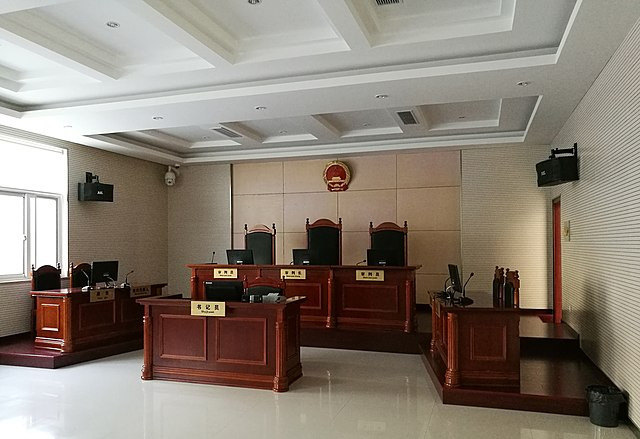A Chinese court on Monday sentenced a teenager to life in prison for the murder of a classmate in a case that has sparked nationwide debate on juvenile crime and accountability. The chilling details of the murder, involving bullying and premeditated violence, have ignited public scrutiny of the treatment of young offenders in China.
The incident occurred in March, when three teenagers, all aged 13 at the time, were accused of persistently bullying a 13-year-old classmate, surnamed Wang. The abuse escalated into murder in an abandoned greenhouse in northern China's Hebei province. The perpetrators reportedly attacked Wang with a shovel before burying his body in a shallow pit, according to state media reports.
The court in Handan, Hebei province, found the primary suspect, surnamed Zhang, guilty of intentional homicide and sentenced him to life imprisonment. Another accomplice, surnamed Li, received a 12-year prison term. A third boy, surnamed Ma, was sentenced to "special correctional education" after the court determined he did not directly participate in the violence.
The court described the methods used in the killing as "particularly cruel" and the circumstances as "particularly vile," emphasizing the severity of the crime. The prosecution argued that the defendants, although under 14 at the time, were criminally responsible under Chinese law, which was amended in 2021 to lower the age of criminal responsibility from 14 to 12 in "special cases" involving extreme violence or cruelty.
The victim's body was discovered on March 10, buried in the greenhouse on the city's outskirts. The suspects were detained the following day. Investigations revealed that Zhang had planned the murder and took primary responsibility for carrying it out, while Li assisted in both the killing and burial. Ma was present but did not engage in the act, according to court findings.
This case is among the first to apply the 2021 amendment to China's juvenile justice laws, signaling the country's shift toward harsher penalties for young offenders in extreme cases. However, the tragedy has also highlighted the vulnerabilities of "left-behind" children-youth whose parents migrate to urban centers for work, leaving them in the care of relatives.
The defendants and the victim were all children of rural migrant workers, a demographic that faces significant challenges, including inadequate supervision and limited access to resources. According to 2020 census data, China has nearly 67 million "left-behind" children, many of whom are at greater risk of mental health issues, bullying, and involvement in criminal activities.
The crime has reignited public discussions about societal responsibility and the root causes of juvenile delinquency. Commentators have called for comprehensive reforms to address systemic issues, including poverty, lack of parental presence, and gaps in education and mental health support.
The court's sentences reflect the gravity of the crime but have left many questioning whether justice has been fully served. While some have applauded the life sentence for Zhang as appropriate, others argue that punitive measures alone are insufficient to prevent similar tragedies.
China's state media noted that addressing juvenile crime requires more than legal amendments; it demands societal engagement to tackle underlying issues. The Hebei case underscores the importance of early intervention and support systems for vulnerable youth, a challenge that remains unresolved despite the legal reforms.






